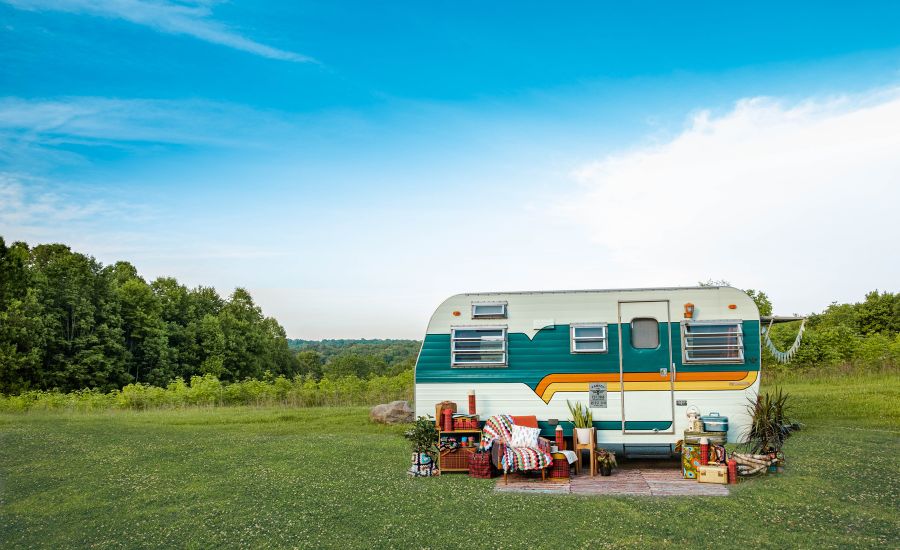How To Live On The Road With No Money?
Imaging waking up looking at the new view every day with no financial worries. Yes, this is what you can get when you start living on the road.
Life on the road may seem like dream to many people but living on the road with no money is a reality that is embraced by courageous travelling nomads. To live on road with no money, you have to resourceful, adaptive and embrace alternative options that are easily available such as utilizing public resource, low-cost food and engaging in income generating opportunities.
So, let’s get ready to dive into the journey of Life on the Road also knows as Van Life. Life on the Road is a transformative journey where you will be exploring different strategies, mindset shift and creative solution.
Also Read: 15 Best Traveling Jobs To Make Money
8 Tips For Van Life With No Experience
Start with thorough research
Before diving into van life with no experience, it’s essential to conduct comprehensive research. Learn about the legalities and regulations surrounding living in a van, including parking restrictions, camping laws, and permit requirements in different areas. Educate yourself about the basics of van maintenance and troubleshooting, as well as the necessary equipment and modifications needed for comfortable living on the road.
Choose the right van
Selecting the right van is a crucial step in ensuring a positive van life experience. Consider factors such as your budget, desired level of comfort, and specific needs.
Popular van options include cargo vans like the Ford Transit, Mercedes-Benz Sprinter, or Ram Promaster. Smaller vans like the Volkswagen Transporter or Ford Transit Connect are also suitable for solo or minimalist living. Research the reliability, fuel efficiency, and maintenance costs of different van models to make an informed decision.
Also Read: Best Travel Movies On Netflix
Create a budget
Living on the road with no money requires careful financial planning. Outline a budget that includes all essential expenses like fuel, food, insurance, repairs, and hygiene needs.
Research cost-saving measures, such as finding free or low-cost campsites, cooking your own meals instead of eating out, and utilizing public resources like libraries and gyms for showers and internet access. Explore income-generating opportunities like remote work, freelancing, or seasonal jobs to sustain your lifestyle on the road.
Also Read: 7 Ways To Travel On A Budget
Downsize and declutter
To make the most of your limited space, downsizing and decluttering are crucial. Prioritize your belongings and keep only the essentials. Get rid of unnecessary items through donation, selling, or storing them with friends or family. Maximize storage options within your van by utilizing space-saving solutions like collapsible furniture, storage bins, and modular storage systems.
Learn basic vehicle maintenance
Even with no prior experience, acquiring basic knowledge of vehicle maintenance is essential for van life. Learn about regular checks and maintenance tasks like oil changes, tire rotations, brake inspections, and fluid top-ups.
Familiarize yourself with the electrical and plumbing systems of your van, understanding how to troubleshoot common issues that may arise. This knowledge will help you avoid breakdowns and costly repairs while on the road.
Plan your routes and destinations
While van life offers the freedom to be spontaneous, having a loose itinerary can be helpful, especially if you’re new to this lifestyle. Research potential destinations, scenic routes, and points of interest along your journey.
Utilize travel resources, online communities, and apps like iOverlander and Campendium to find suitable campsites, free parking spots, and amenities like showers and water sources. Remain flexible and open to unplanned adventures that may arise along the way.
Stay connected and safe
Maintaining a connection with the outside world is crucial during van life. Invest in reliable communication devices like a mobile hotspot or satellite internet to stay connected with loved ones, work remotely if needed, and access online resources for information and entertainment.
Ensure personal safety by practicing common-sense precautions, such as parking in well-lit areas, trusting your instincts, and being mindful of your surroundings. Connect with the van life community through social media platforms, forums, or local meetups to share experiences, gain valuable insights, and find support during your journey.
Embrace the van life community
Van life can sometimes be challenging, but connecting with other van dwellers can provide support and camaraderie. Join online communities, attend van life gatherings or meetups, and engage with fellow van lifers. These connections can offer valuable advice, friendship, and a sense of belonging throughout your journey.
What Kind Of Van Is Best For Van life?
When it comes to choosing the right van that can offer you a comfortable life on the road, you have to look for following key components.
- Space And Layout
- Reliability, Technical And Mechanical Conditon
- Fuel Efficiency
- Maintenance And Repair Cost
- Safety Features
- Storage And Cargo Capacity
- Customization Options
- Budget Alignment
What Are Best Van For Life On The Road?
- Mercedes Sprinter Van
- Ram Promaster
- VW Crafter
- Citroen Relay/ Peugeot Boxer/Fiat Ducato
- Ford Transit
- Mercedes Vario 814
- Renault Master
- International School Bus
What Are The Downside Of Van life?
Life on the Road (a.k.a Van Life) may offer you an opportunity to explore new options and meet people from different culture, region and colour. But it also have a decent list of downside that can put you in a difficult position. Here are the 7 downside of Vanlife.
1. Limited Space
Living in a van means living in a small space. This can require significant downsizing and adapting to a minimalist lifestyle. Lack of space can be challenging when it comes to storage, personal privacy, and accommodating additional people or pets.
2. Basic Amenities
Van life often involves sacrificing certain comforts and conveniences found in traditional homes. Limited access to amenities like a full bathroom, shower, or kitchen appliances may require alternative solutions and adjustments to daily routines.
3. Climate Challenge
Extreme weather conditions can be more challenging to manage in a van. Insulation and temperature control can be less effective, leading to discomfort during hot summers or cold winters. Condensation and ventilation issues may also arise in certain weather conditions.
4. Lack of Stability
Constantly being on the move means living without a fixed address or stable community. This can result in feelings of rootlessness, difficulty in maintaining relationships, and challenges with accessing consistent healthcare or other services.
5. Parking and Legalities
Finding suitable places to park and sleep overnight can be a challenge. It’s essential to understand local parking regulations, camping restrictions, and potential safety concerns. Depending on the area, finding free or affordable parking spots may require research and planning.
6. Maintenance and Repairs
Owning and maintaining a van can come with unexpected expenses. Regular maintenance, repairs, and occasional breakdowns are part of van life. Depending on your mechanical skills, you may need to learn basic repairs or budget for professional assistance.
7. No Social Interaction
While van life can offer a sense of freedom and independence, it can also lead to feelings of isolation. Being constantly on the move and lacking a stable community may limit social interactions and connections. Building and maintaining relationships can require additional effort and creativity.
8. Financial Planning
Although van life can be a cost-effective alternative to traditional housing, it’s important to have a realistic budget and consider long-term financial sustainability. Expenses such as fuel, repairs, insurance, and unexpected costs can add up over time.
9. Privacy and Security Issues
Living in a van can present challenges regarding privacy and security. Thin walls and the possibility of being parked in public areas may mean less privacy compared to a traditional home. It’s important to take precautions to ensure personal safety and protect your belongings.
Why I Must Quit Van life?
Quitting Vanlife can be your personal choice due to multiple reasons such as change in personal life, responsibilities, financial problems, safe and security concerns and many more.
Top 5 Reason To Quit Van Life.
- Feeling Lonely
- Taking Break
- Running Out Of Money
- Outside Pressure From Loved Ones
- Burnout
- Shift In Priorities





